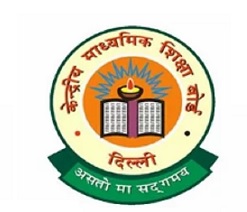
| Department | Department of Higher Education |
| Exam | Joint Entrance Examination [JEE] Main |
| Download | [JEE] Main Syllabus 2021 |
| Document Type | |
| Official Website | https://jeemain.nta.nic.in/ |
JEE Main Joint Entrance Exam
The Department of Higher Education, Ministry of Human Resource Development (now known as Ministry of Education), Government of India has entrusted the responsibility of conducting Joint Entrance Examination JEE (Main) to the NTA from 2019 onwards.
Also Read : NTA JEE Main 2021 Exam Admit Card
The Joint Entrance Examination (JEE Main) comprises of two papers. The Paper1 is conducted for admission to Undergraduate Engineering Programs (B.E/B. Tech) at NITs, IIITs, other Centrally Funded Technical Institutions (CFTIs), Institutions/Universities funded/recognized by participating State Governments, as well as an eligibility test for JEE (Advanced), which is conducted for admission to IITs.
Download JEE Main Syllabus 2021
| Exam | Syllabus |
| [JEE] Main 2021 | Download |
JEE Main Syllabus 2021
Syllabus for Paper-1 (B.E./B.Tech.)- Mathematics, Physics and Chemistry
Mathematics:
Unit 1: Sets, Relations And Functions:
Sets and their representation: Union, intersection and complement of sets and their algebraic properties; Power set; Relation, Type of relations, equivalence relations, functions; one-one, into and onto functions, the composition of functions.
Unit 2: Complex Numbers And Quadratic Equations:
Complex numbers as ordered pairs of reals, Representation of complex numbers in the form a + ib and their representation in a plane, Argand diagram, algebra of complex number, modulus and argument (or amplitude) of a complex number, square root of a complex number, triangle inequality, Quadratic equations in real and complex number system and their solutions Relations between roots and coefficient, nature of roots, the formation of quadratic equations with given roots.
Unit 3: Matrices And Determinants:
Matrices, algebra of matrices, type of matrices, determinants and matrices of order two and three, properties of determinants, evaluation of determinants, area of triangles using determinants, Adjoint and evaluation of inverse of a square matrix using determinants and elementary transformations, Test of consistency and solution of simultaneous linear equations in two or three variables using determinants and matrices.
Unit 4: Permutations And Combinations:
The fundamental principle of counting, permutation as an arrangement and combination as section, Meaning of P (n,r) and C (n,r), simple applications.
Unit 5: Mathematical Inductions:
Principle of Mathematical Induction and its simple applications.
Also Read : IIT JEE Advanced Syllabus 2021
Unit 6: Binomial Theorem And Its Simple Applications:
Binomial theorem for a positive integral index, general term and middle term, properties of Binomial coefficients and simple applications.
Unit 7: Sequence And Series:
Arithmetic and Geometric progressions, insertion of arithmetic, geometric means between two given numbers, Relation between A.M and G.M sum up to n terms of special series; Sn, Sn2, Sn3. Arithmetico-Geometric progression.
Unit 8: Limit, Continuity And Differentiability:
Real – valued functions, algebra of functions, polynomials, rational, trigonometric, logarithmic and exponential functions, inverse function. Graphs of simple functions. Limits, continuity and differentiability. Differentiation of the sum, difference, product and quotient of two functions. Differentiation of trigonometric, inverse trigonometric, logarithmic, exponential, composite and implicit functions; derivatives of order up to two, Rolle’s and Lagrange’s Mean value Theorems, Applications of derivatives: Rate of change of quantities, monotonicIncreasing and decreasing functions, Maxima and minima of functions of one variable, tangents and normal.
Unit 9: Integral Calculas:
Integral as an anti-derivative, Fundamental Integrals involving algebraic, trigonometric, exponential and logarithms functions. Integrations by substitution, by parts and by partial functions. Integration using trigonometric identities. Evaluation of simple integrals of the type. Integral as limit of a sum. The fundamental theorem of calculus, properties of definite integrals. Evaluation of definite integrals, determining areas of the regions bounded by simple curves in standard form.
Unit 10: Diffrential Equations
Ordinary differential equations, their order and degree, the formation of differential equations, solution of differential equation by the method of separation of variables, solution of a homogeneous and linear differential equation
Have a question? Please feel free to reach out by leaving a comment below

![NISER National Entrance Screening Test [NEST] 2021 Syllabus NEST-Logo](https://www.recruitmentzones.in/wp-content/uploads/2021/07/NEST-Logo-150x150.jpg)
